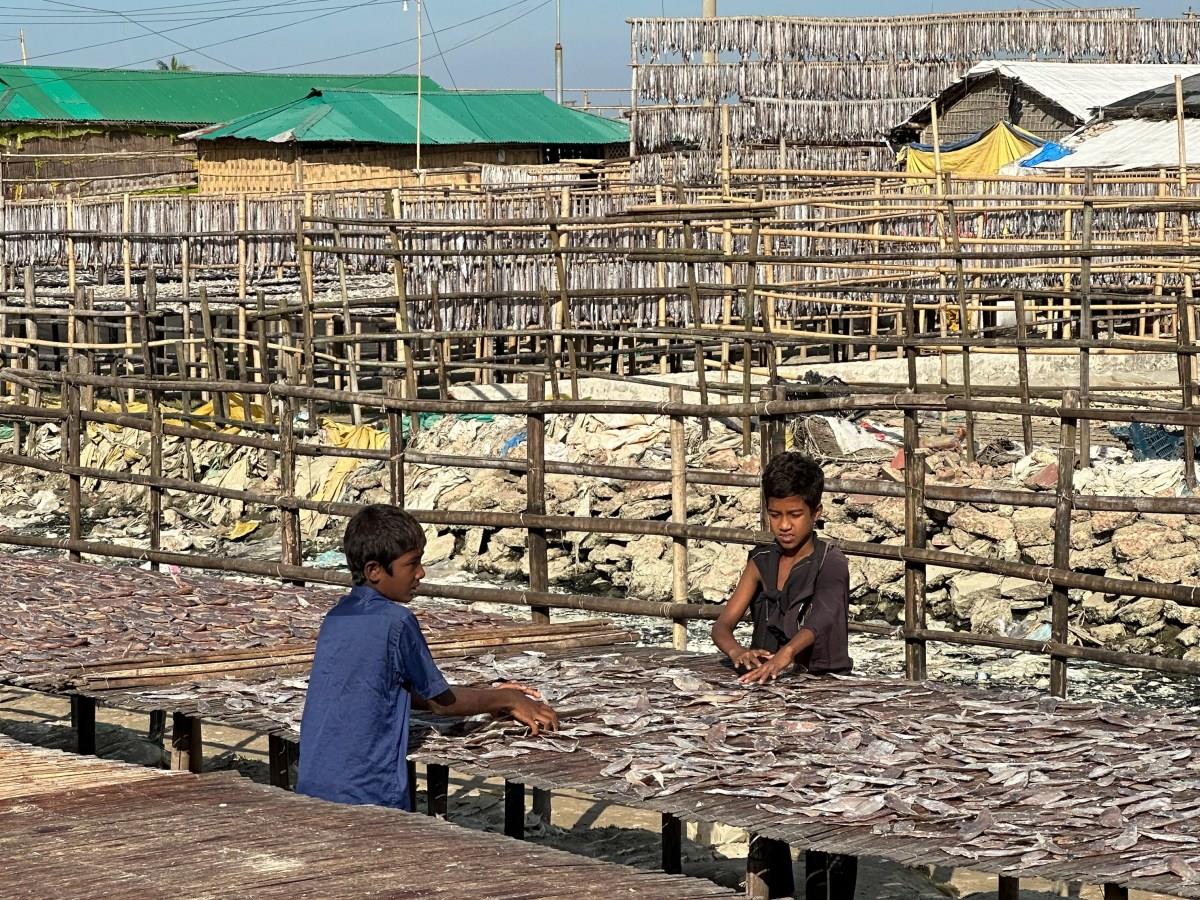
Escaping Poverty Through Education: Child Labour In Bangladesh
Where does Switzerland stand? Where is it heading? Its developments are my focus.
-
More from this auth
German Departme
-
Deutsch
de
Kinderarbeit in Bangladesch: Mit Bildung einen Weg aus der Armut suchen
Original
Read more: Kinderarbeit in Bangladesch: Mit Bildung einen Weg aus der Armut suche
Français
fr
Sortir de la pauvreté grâce à l'éducation: le travail des enfants au Bangladesh
Read more: Sortir de la pauvreté grâce à l'éducation: le travail des enfants au Banglades
Italiano
it
L'istruzione come via d'uscita dal lavoro minorile in Bangladesh
Read more: L'istruzione come via d'uscita dal lavoro minorile in Banglades
It is the start of the winter season, but temperatures are still around 30°C in Nazirartek in southern Bangladesh. In this coastal town near the city of Cox's Bazar the main product is dried fish. Mainly women, children and teenagers are employed in processing, packing and selling the fish, which has been caught by the huge fishing fleet out in the Gulf of Bengal.
They cut the fish up, clean it and then lay it on wooden boards to dry out. They have to keep turning it for days on end. Working conditions are hard, and the standard of living in the slum area of Nazirartek is even lower than the average for Bangladesh.
Child labour is common in this industry. These children don't have time to go to school, and they may abandon their education altogether. That way they stay caught in the vicious circle of poverty and lack of opportunity. Local NGOs are therefore working on the ground to get children integrated into the education system.
A child typically gets 100 Taka (CHF0.75) for an eight-hour shift, sometimes even less than that. Giannis Mavris / SWI swissinfo
Why we are writing about this
Switzerland was one of the first countries to recognise Bangladesh as an independent state after it seceded from Pakistan in 1971 in a war that resulted in enormous losses. Since then, both the Swiss development agency SDC and numerous NGOs have been active in the country.
The projects mentioned in the article are implemented by the local organisation Young Power in Social ActionExternal link (YPSA), which is the implementing partner of the Swiss NGO Solidar SuisseExternal link .
During the week of December 16-20, the fundraising organisation Swiss SolidarityExternal link is organising a Solidarity Week. The donations collected will be used to fund projects to protect children from violence and abuse, including the projects described here.
Swiss Solidarity is the humanitarian arm of the Swiss Broadcasting Corporation, SWI swissinfo's parent company.

Legal Disclaimer:
MENAFN provides the
information “as is” without warranty of any kind. We do not accept
any responsibility or liability for the accuracy, content, images,
videos, licenses, completeness, legality, or reliability of the information
contained in this article. If you have any complaints or copyright
issues related to this article, kindly contact the provider above.


















Comments
No comment